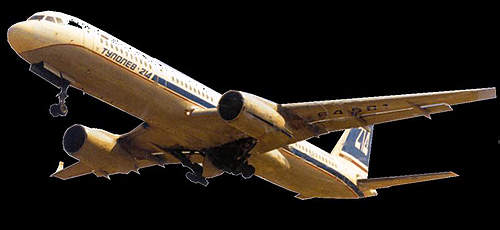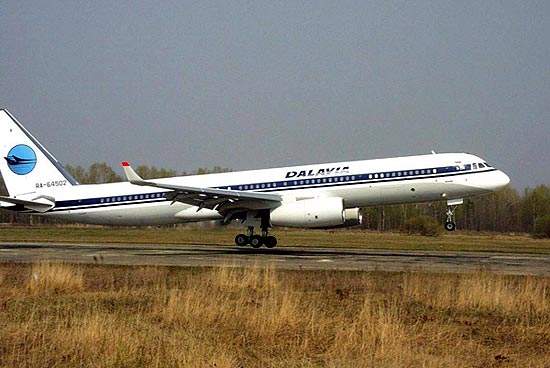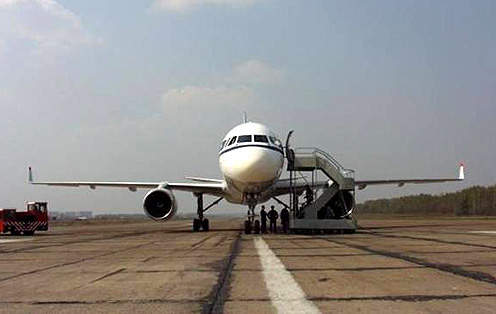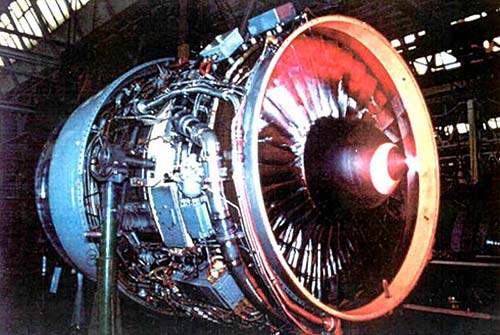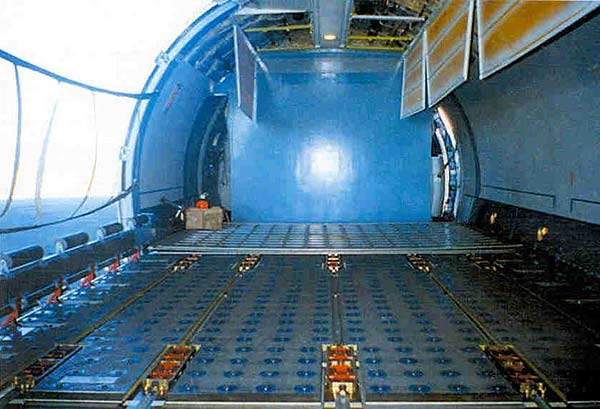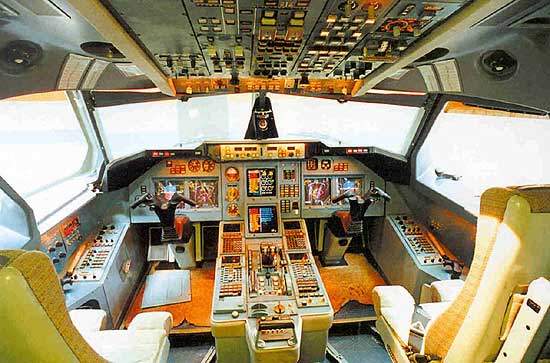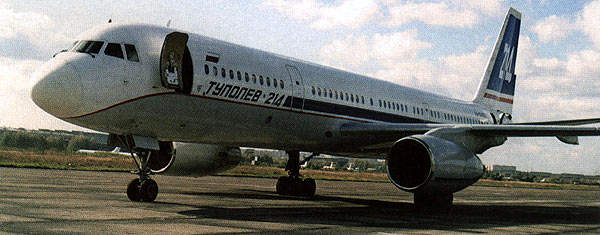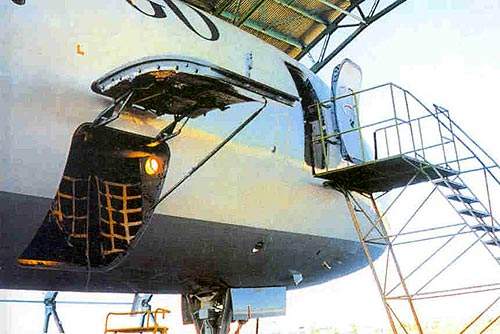The Tu-214 medium to long-range airliner is a development of the Tupolev Tu-204 with higher weight and longer range. The aircraft was designed by Tupolev JSC of Moscow, Russia and is manufactured at the Kazan Aircraft Production Organisation (KAPO) in Tatarstan.
The Tupolev Tu-214 was certified in December 2000 against the Russian AP-25 standards. The aircraft entered service in May 2001 with the Dalavia Airline of Khabarovsk, on scheduled Russian domestic and international routes. The aircraft entered service with the Russia State Transport organisation.
In addition, orders for the aircraft were placed by Transaero (ten ordered, first delivered April 2007), Uralskie Airlines, Atlant-Sojuz and Slovak Airlines (two aircraft).
TU-214 configurations
The aircraft is available as a single-class or two-class passenger airliner, a combination cargo / passenger aircraft and a VIP / VVIP aircraft.
The baseline single-class configuration of the Tu-214 provides 210 passenger seats in a single aisle 3×3 seat arrangement. A two-class arrangement provides 164 seats with 16 business-class seats and 148 economy seats.
The Tu-214C3, the 214 combi passenger-cargo convertible, is for mixed cargo and passenger operation.
VIP presidential aircraft
The layout of the VIP aircraft is tailored to the customer’s requirement. A typical layout of the Tu-214 VIP presidential aircraft includes a lounge, a bedroom with en suite shower-room and a sitting room with an office area with business-class seating. The Tu-214 VIP has a maximum range of 9,200km.
Cargo-passenger TU-214 C3
The Cargo-Passenger Tu-214 aircraft can transport up to 164 passengers or 25.2t of cargo in 26 LD3-46 standard containers. The aircraft can be converted by airport ground crew from the passenger version to a mixed cargo / passenger version or to the all-cargo version in, typically, four or five hours.
18 containers can be loaded in the main passenger cabin and eight containers loaded in the cargo compartment.
single-aisle arrangement”
The aircraft is fitted with a 3,405mm x 2,180mm cargo door and the internal cargo lift for automated loading and unloading of standard containers is installed beneath the cargo hatch.
The cargo containers are delivered by an airport loading system to the rear cargo compartment. The aircraft is equipped with a fully automatic container loading system with manual back-up.
The first eight containers are automatically lifted to the passenger compartment and automatically secured in the designated positions. A further five containers are secured in the cargo compartment. Unloading the containers is carried out in the opposite order.
Tupolev Tu-214 flight deck
The ergonomically designed dark-cabin cockpit accommodates the pilot, co-pilot and flight engineer. A fourth seat is available for an observer or instructor. The aircraft has triplex digital fly-by-wire controls with triplex analogue back-up and has
an automatic approach and landing system.
The electronic flight and information system provides two large colour flight and navigation information CRT displays for both pilot and co-pilot. The engine and systems data are displayed on two colour CRTs on the central panel between the
pilots.
The aircraft is equipped with digital computer systems and the integrated flight and navigation system provides automated navigation and ICAO III-d category take-off and landing.
Tupolev Tu-214 turbofan engines
The Tu-214 is powered by two underwing PS-90A turbofan engines installed in composite cowlings.
The aircraft has integral fuel tanks in the wings, in the cargo / baggage hold and also in the tailfin. A torsion box in the tailfin operates as the fuel tank for the automatic centre of gravity trimming during flight.
The engines are rated at 16,000kg static thrust at sea level and 17,600kg with emergency power. The range of the aircraft with a full passenger load is 5,650km.
Landing gear
The Tu-214 has hydraulically retractable tricycle-type landing gear, the nose unit fitted with twin wheels and the main units with four wheels. The nosewheel unit retracts forward and the main units retract inward under the wing and fuselage fairings.
The landing gear is equipped with carbon disc brakes.


